US Congress Passes Bill Outlawing Ties With Syria, 'Patron Of Iran'
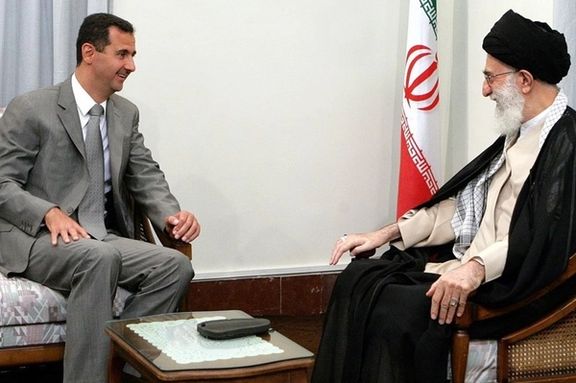
The US House of Representatives passed a bill which outlaws the normalization of ties between Washington and Syria in protest of the brutal regime of President Bashar al-Assad.

The US House of Representatives passed a bill which outlaws the normalization of ties between Washington and Syria in protest of the brutal regime of President Bashar al-Assad.
Written by Joe Wilson (R-SC), the “Assad Regime Anti-Normalization Act” was passed by a vote of 389-32.
“This bill prohibits federal officials or employees from taking any action to recognize a Syrian government led by Bashar al-Assad. The bill also expands existing sanctions related to the Syrian conflict to cover additional activities and persons,” the Congress announced.
Talking during the House session to discuss the draft law, Wilson said, “What happened in Syria was a merciless massacre, systematic rape, and chemical warfare used against the Syrian people.”
Assad’s “ability to kill the opposition and regain territory was made possible thanks to the support of like-minded war criminals … such as Putin and the Iranian regime," added Wilson, who serves as the Chairman of the Subcommittee on Middle East Affairs of the Foreign Affairs Committee of the US Congress.
Toby Dershowitz, Managing Director of the Foundation for Defense of Democracies, hailed the House’s move, saying it demonstrates that both Democrats and Republicans will continue to hold Assad and “his patron, the Islamic Republic of Iran” accountable for their actions.
Meanwhile, many Syrian activists also welcomed the passage of “Assad Regime Anti-Normalization Act,” calling it “a step in the right direction.”
The act needs to be approved by the US Senate in order to be implemented.
The war in Syria, which broke out in 2011, still rages on with the UN estimating that more than 300,000 civilians were killed in the first decade of the conflict.
During its 13 years, the war has forced more than half of the country’s 22 million pre-war population to flee their homes, a major factor in Europe’s migrant crisis.
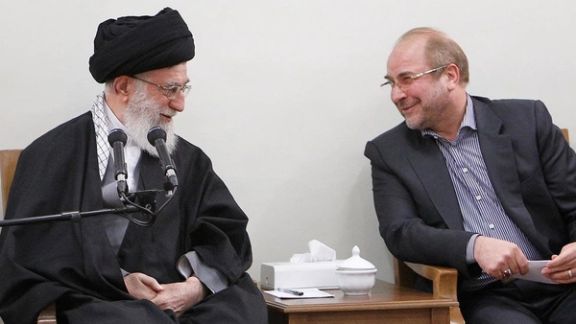
Two petitions are now underway to the Canadian government to prevent the granting of a visa to the son of Iran’s parliament speaker, Mohammad-Bagher Ghalibaf, a former top Revolutionary Guard commander.
A Canadian Federal Court document has emerged on social media in the past few days, which indicates that in 2022, Es’haq Ghalibaf, filed for the judicial review of the processing time of his immigration application and the federal court’s Justice Norris ruled that his application should be granted.
“As proud Iranian-Canadians who stand for freedom and democracy in Iran, we find it unimaginable that Canada would consider welcoming the son of such a warmonger, who, along with his father and family, has allegedly participated in money laundering and other corrupt activities,” the petition said.
“Allowing members of the dictatorship in Iran and their affiliates to enjoy freedom in Canada while they suppress Iranians and ruin the economy and environment of that proud country is unacceptable,” it added.
The court document indicates that Ghalibaf’s son, a civil engineer, was invited in December 2018 to apply for admission to Canada as a permanent resident under the Express Entry federal skilled worker program and completed his application in February 2019.
The document also shows that Pierre Poilievre's office, who is the leader of the Conservatives in parliament, made “repeated inquiries” about the progress of Ghalibaf's application from the authorities.

Poilievre has advocated for imposing sanction on the Revolutionary Guards (IRGC), may have been unaware of the applicant’s father’s close ties with the IRGC. However, as speaker of parliament, Ghalibaf is the third highest ranking official in the country, after Khamenei and President Ebrahim Raisi.
It is not clear how his case reached Poilievre and why he tried to help, when often thousands of immigration applicants are either denied or have to wait years to be granted entry.
The document shows that in October 2023, Ghalibaf applied to the Federal Court for an order to compel the minister of citizenship and immigration to render a decision on his application.
“Out of an abundance of caution, the applicant also named the minister of public safety and emergency preparedness as a respondent because agencies under his authority are responsible for security screening,” the document says, adding that these respondents oppose the application on the basis that the delay is reasonably explained by the need to conduct security screening.
Ahead of the upcoming elections, hardline rivals of his father have politicized the issue. The Iranian regime propagandist, conspiracy theorist, and Ghalibaf critic Ali-Akbar Raefipour urged the Speaker to explain why his son should be seeking permanent residency in a “hostile country” as Iranian hardliners call Canada.
Reminding Ghalibaf that in 2017, when he was running for president, he had said that his son only owned an old car, a motorcycle, and a small amount of money, Raefipour demanded that he also explain how much his son has invested in Canada and how he has afforded the costs of application for permanent residency and legal action against the Canadian government.
“We know about this matter due to the transparency of court cases in Canada, otherwise, Mr. Ghalibaf and his family have not given away any information,” he wrote.
“If Eshaq Ghalibaf enters Canada, it means cooperation with IRGC,” a regime critic told the Canadian Prime Minister Justin Trudeau in a tweet. “The money that Es’haq brings with him to Canada is the money of the Iranian people, the same people who are oppressed and killed by the mullahs' regime and by the IRGC.
“It is not clear what profitable work Es’haq Ghalibaf has done in less than six years, so that he already managed to obtain the financial resources required for Express Entry to Canada … and the immigration lawyer's fees,” moderate Rouydad24 website in Tehran wrote.
In April 2022 Ghalibaf’s critics accused him of hypocrisy for admonishing others for living a luxurious life, and telling Iranians they should support domestically made products. Ghalibaf had also urged tens of millions of Iranians suffering economic hardships to be patient when it was revealed that his daughter and wife had traveled to Turkey to buy luxury baby products for his yet unborn grandchild.
The revelation also caused resurfacing of other alleged corruption cases against the family including spending hefty sums on purchasing properties in Turkey and many called for his resignation. His supporters claimed rivals in intelligence agencies were behind the revelation.
Correction: The original version of this report wrongly said that Ghalibaf made repeated inquiries from Pollivier's office. The original document says that his office made inquiries. Also, the original version said that the lawmaker's office "allegedly provided a recommendation letter to Ghalibaf." This could not be verified and was deleted.

Iran’s exiled prince has blamed the West’s lenient policies toward Tehran for escalating tensions amid a simmering proxy war.
The proxies continue to operate in the region as a result of “an absence of strong leadership in the West and a weakness that is attempting some kind of appeasement of the Islamic regime in Iran,” Reza Pahlavi said in an interview with Jewish News Syndicate.
Referring to Iran’s involvement in radicalism, terrorism and the nuclear threat, he warned against the regional and global consequences of allowing the regime to continue to exist.
“The enemy, the Islamic regime in Iran, is committed to the max to do their evil deeds. The only way to counter that is to be united, to work together and to solve the problem,” Pahlavi remarked.
Citing Hamas’ October 7 onslaught on Israel, Iran’s exiled prince stressed that the international community needs to confront directly “the eye of the octopus,” referring to the Iranian regime.
“Hamas, Hezbollah and the Houthis are the tentacles of this regime that have been operating for more than four decades internationally, beyond our own region. The only way to put an end to all of this is to eliminate the source of the problems,” he went on to say.
Though Iran has avoided any direct military involvement in the Israel-Hamas conflict, the regime has used its proxy groups to attack Israeli and American targets in the Middle East.
Pahlavi called the IRGC “the de facto paramilitary mafia” which exerts its control over all aspects in Iran, urging Europe to designate it as a terrorist organization.
“That is very important because this cripples the regime and its tentacles even more,” he noted.
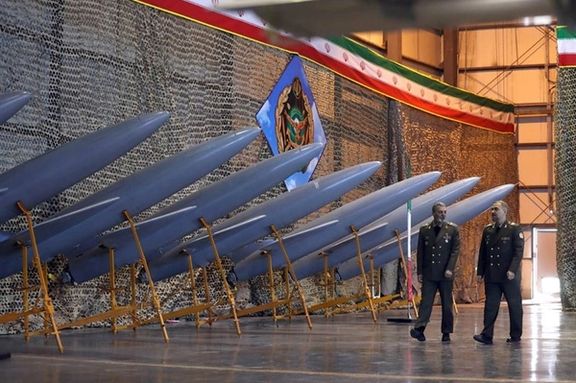
Collaborative drone research involving academics from the US, UK, and Australia with an Iranian university under international financial sanctions has stirred concerns.
According to findings by The Guardian, security experts have pointed out the direct military implications of the research, citing its relevance to drone warfare scenarios, especially in conflict zones like Ukraine and the Middle East.
Conor Healy, Director of Government Research at IPVM, emphasized the significance, stating, "There are direct implications of the technology presented in this paper for military use."
Robert Czulda, a professor in international and political studies at the University of Łódź, Poland, echoed concerns, labeling the research as "potentially very dangerous." He warned against engaging in such projects, emphasizing the ease with which technologies related to communication and signal repeating could be repurposed for military applications.
The study, published by the Institute of Electrical and Electronics Engineers in 2023, explored the use of drones in wireless networks and as communication hubs. It involved collaboration between researchers from the University of Southampton, the University of New South Wales (UNSW) in Sydney, the University of Houston, and Sharif University of Technology in Tehran.
Notably, Sharif University, known for its ties to the Iranian military, is subject to financial sanctions by the EU and UK, with a senior official from the institution sanctioned by the US. Reports suggest that Iran's rapid development in UAV technology was facilitated by research support from Sharif University.
In response, governments took action. In June 2023, the UK probed collaborations with Iran on UAV research. Similarly, Canada tightened research funding rules. The University of Houston denied affiliation, citing export laws and UNSW denied direct funding but confirmed rigorous assessments.

A recent mandate requiring advertising licenses for social media accounts boasting over 5,000 followers in Iran has raised concerns over government control and taxation motives.
Abbas Mohammadian, the Islamic guidance ministry’s media and advertisement deputy defended the requirement as a measure to safeguard legal rights and ensure advertising compliance with regulations. However, skepticism persists regarding its broader implications, including identification of influencers and taxation of their earnings.
The regulation, applicable to both foreign and domestic social media platforms, has sparked criticism, especially in light of Iran blocking most major social media platforms, such as X, Facebook and Youtube.
“What license? All [foreign] social media applications are blocked … What are you going to do if they don’t [acquire one]?” a tweet asked the authorities.
Many suspect that besides controlling content of advertisements and ensuring they do not break the rules of Sharia such as the rules for hijab, the requirement is meant to be used for identifying bloggers and influencers as well as their content creators, photographers, models, and admins. Some of these individuals have high earnings for which they may not be paying taxes, because they are not officially employed.
“Who has given you the right to tax [Instagram] bloggers and require a license for their activities when you are the ones that have blocked Instagram,” another tweet told authorities.
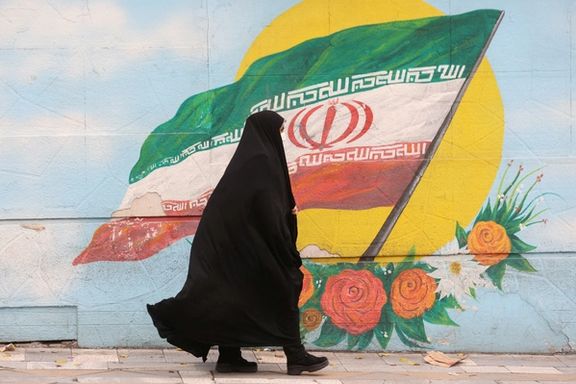
All major social networks including Instagram, Facebook, X (former Twitter), YouTube, Telegram and WhatsApp are blocked in Iran, but controls are readily sidestepped by VPNs (virtual private networks) and anti-filtering software. Nearly every Iranian with a smartphone has installed anti-filtering software that allows access to filtered applications and websites.
Instagram is the second most popular social platform in Iran after Telegram with over forty million users. Both platforms are used by millions of small and home-based businesses for marketing.
These small businesses, particularly those run from homes by women or small farms in rural areas, heavily rely on Instagram for advertising their products -- anything from handwoven rugs to herbs and vegetables grown in their rural gardens and duck eggs. They also use WhatsApp, through VPN, for communication with potential customers. Many of these small businesses that exponentially grew after the Covid pandemic have thousands of followers now.
A survey conducted by the state-run Iranian Students Polling Agency (ISPA) in 2021 found that 73.6 percent of Iranians over the age of 18 use social media, including WhatsApp (64.1), Instagram (45.3), and Telegram (36.3). Only 4.8 percent reported that they use domestically developed platforms.
The ban on Instagram, the only social platform not blocked by authorities until then, was announced on September 21, 2022, a few days after anti-government protests sparked by the death of 22-year-old Mahsa Amini in the custody of morality police engulfed the country.
Despite restrictions for ordinary citizens, Iran’s Supreme Leader Ali Khamenei had multiple accounts on Instagram and Twitter until last week when Meta, the owner of Instagram and Facebook, removed his accounts on these platforms. Meta said this was based on its policy of denying its platforms to organizations and individuals that “proclaim a violent mission or are engaged in violence”.
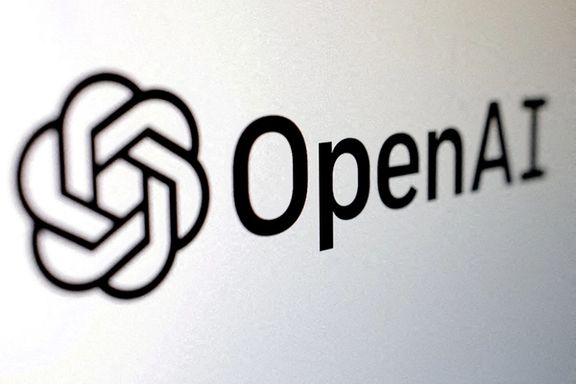
State-backed hackers from Russia, China, and Iran have been leveraging tools developed by Microsoft-backed OpenAI to enhance their cyber espionage capabilities.
Microsoft disclosed on Wednesday that hacking groups affiliated with entities such as Russian military intelligence, Iran's Revolutionary Guard, and Chinese and North Korean governments had been utilizing large language models, a form of artificial intelligence, to refine their hacking techniques. The models utilize extensive text data to generate responses that closely resemble human language.
In response to the findings, Microsoft has imposed a blanket ban on state-backed hacking groups from accessing its AI products, regardless of any legal or terms of service violations. According to Tom Burt, Microsoft's Vice President for Customer Security, the company aims to prevent threat actors from exploiting this technology for malicious purposes.
While Russian, North Korean, and Iranian diplomatic officials have not yet commented on the allegations, China's US embassy spokesperson Liu Pengyu rejected the accusations.
Microsoft further detailed various ways in which such hacking groups utilized large language models, including research on military technologies, spear-phishing campaigns, and crafting convincing emails to deceive targets.
Earlier this year, Microsoft warned that Russia, Iran, and China are likely to plan to influence the upcoming elections in the United States and other countries in 2024. Microsoft's Threat Analysis Center also confirmed that Iran has intensified its cyberattacks and influence operations since 2020.